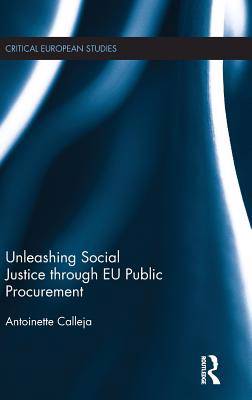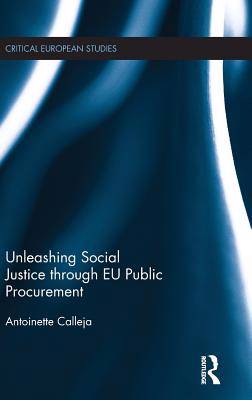
- Retrait gratuit dans votre magasin Club
- 7.000.000 titres dans notre catalogue
- Payer en toute sécurité
- Toujours un magasin près de chez vous
- Retrait gratuit dans votre magasin Club
- 7.000.0000 titres dans notre catalogue
- Payer en toute sécurité
- Toujours un magasin près de chez vous
Unleashing Social Justice through EU Public Procurement
Antoinette CallejaDescription
The dramatic results of the 2014 European Parliament elections have highlighted the European Union's urgent need for a review of the scope and purpose of its social objectives and for a reordering of European priorities.
This book advocates a radical and original alternative to the current philosophy that determines the set of rules for the awarding of EU public procurement contracts. It calls for a reordering of the EU's economic and social priorities. In doing so, it advocates for a social dimension to be placed at the core of public procurement, which could elicit a social model of integration in the EU in which the European citizen is the key actor. This is achieved through an analytical approach as well as concise and contextualised explanations relating to free trade theories, poverty and public interest theories.
This book will be of key interest to students and scholars of the European Union, political theory, and EU law.
Spécifications
Parties prenantes
- Auteur(s) :
- Editeur:
Contenu
- Nombre de pages :
- 236
- Langue:
- Anglais
- Collection :
- Tome:
- n° 2
Caractéristiques
- EAN:
- 9781138930896
- Date de parution :
- 01-10-15
- Format:
- Livre relié
- Format numérique:
- Genaaid
- Dimensions :
- 157 mm x 234 mm
- Poids :
- 498 g

Les avis
Nous publions uniquement les avis qui respectent les conditions requises. Consultez nos conditions pour les avis.






